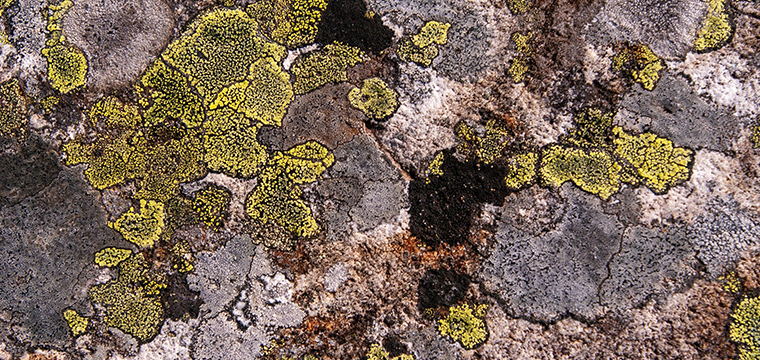
Click an event title below to purchase tickets
Details
If a special event sells out we invite you to secure a ticket to OPEN for free on Friday night
with a Olafur Eliasson: OPEN - First Friday at MOCA Geffen timed ticket.
***A First Friday Olafur Eliasson timed ticket does grant you access to
Sharing Slow Perspectives and/or MOCA Climate Conversations: Like Lichen***
First Fridays: Sharing Slow Perspectives
The Geffen Contemporary
Friday, April 4th, 2025
5 pm
Free with RSVP
First Fridays: MOCA Climate Conversations: Like Lichen
The WAREHOUSE at The Geffen Contemporary
Friday, April 4th, 2025
6 pm
Free with RSVP
First Fridays: Sharing Slow Perspectives
Sharing Slow Perspectives is an opportunity to find a new way to experience the exhibition Olafur Eliasson: OPEN. Participants will become open to slowness, open to space, open to MOCA, open to others. Sharing Slow Perspectives is relational art that acts as a collaborative artistic experience.
Sharing Slow Perspectives is based on the interactive piece Sharing Perspectives by Danish artist Dorte Bjerre Jensen. It is a performative score that explores boundaries, uncertainty, slowness, togetherness, and perspectives. In November 2019 Sharing Perspectives was performed at Tate Modern in London, in relation to the Olafur Eliasson exhibition In Real Life. It was felt by one participant to be ”like booze at a party. It basically breaks your inhibitions, and I think a lot of people that haven’t been raised in art are inhibited about how to act, and this is like a way of smashing through that."
First Fridays: MOCA Climate Conversations: Like Lichen
For those who care to look, lichen teaches many lessons: connectedness, cooperation, and in the words of slowness researcher Joe Dumit, a more attuned “speed of attention.” Moving slowly like lichen allows us to better live in our bodies and appreciate our world, welcoming wonder into the everyday. Similarly, the work of artist Olafur Eliasson engenders this wonder, extending an invitation to engage your senses in slow appreciation of all that is around you. This conversation between anthropologist and slowness expert Joe Dumit and lichenologist Thorsten Lumbsch will explore slowness in perception, experience, biology, and field work in connection with the exhibition Olafur Eliasson: OPEN. The conversation will be moderated by Christian Cummings, the Executive Director of ecological storytelling nonprofit Non-Human Teachers and a partner in the botanically-minded creative studio Cactus Store Studio.
Christian Cummings is the Executive Director of Nonhuman Teachers 501(c)(3) and is a partner in the botanically-minded creative studio Cactus Store Studio, both of which operate in Los Angeles and in NYC, respectively.
For ten years, Cactus Store Studio has worked in the cracks between disciplines on projects that help broker better relationships between people and plants with a "by any means necessary" approach that includes landscape design, greenhouse architecture, publishing, lectures and events, making clothes for gardening in, outdoor furniture design, and even crafted a perfume that makes you smell like a tomato.
Nonhuman Teachers is a 501(c)(3) nonprofit organization that takes a new approach to ecological storytelling, blending science, art, and the imagination to help deepen the relationship between humans and the natural world. Through its multidisciplinary public programming, immersive botanical spaces, and new nature media, Nonhuman Teachers aims to ignite a sense of wonder about our rapidly changing Earth, not only to make us better citizens of this place but to help us imagine it differently. Before Cactus Store Studio and Nonhuman Teachers, Christian worked for seven years at Cal Arts and for two at the Museum of Jurassic Technology in Culver City.
Joe Dumit is an anthropologist of passions and performance, brains and games, AI and computers, contact improvisation and slownesses, drugs and facts. He is Chair of Performance Studies, and Professor of Science & Technology Studies, and Anthropology at University of California Davis. He's a core member of the Experiencing, Experimenting, Reflecting grant with Aarhus University and Studio Olafur Eliasson. His books include Picturing Personhood: Brain Scans & Biomedical America and Drugs for Life: How Pharmaceutical Companies Define Our Health. He likes lichen and speculation.
H. Thorsten Lumbsch, Ph.D is the Vice President of Science and Curator of Lichenized Fungi at the Field Museum. Lumbsch has been fascinated by lichens (often overlooked but ecologically important) since childhood, publishing his first scientific paper at age 15. He received his Ph.D. from the University of Essen in 1993, and served as an assistant professor at the University of Duisburg-Essen before joining the Field. His publications number more than 480 papers, 20 book chapters, and five books. He has active research collaborations in Thailand, Spain, and Kenya, and is an investigator on research grants in the U.S. Brazil, and Spain. Fieldwork has taken him to more than a dozen countries including Australia, India, Kenya, Thailand, Vietnam, and also Antarctica, and he has collaborated on the description of more than 280 new lichen species. Thorsten is managing editor of the journal MycoKeys, a member of a dozen other editorial boards, and past president of the International Association for Lichenology. In addition to his administrative and research roles, Lumbsch is also active as a mentor to the scientists of tomorrow. He is a lecturer at the University of Chicago, and is active in advising graduate students there and at the University of Illinois–Chicago.
Lumbsch received the Gerhard Hess Award from the German Science Foundation for Outstanding Young Scientists in 1999, and in 2017 he was named a Clarivate Analytics Highly Cited Researcher. He is an American Association for the Advancement of Science (AAAS) Fellow, a distinguished lifetime honor within the scientific community.